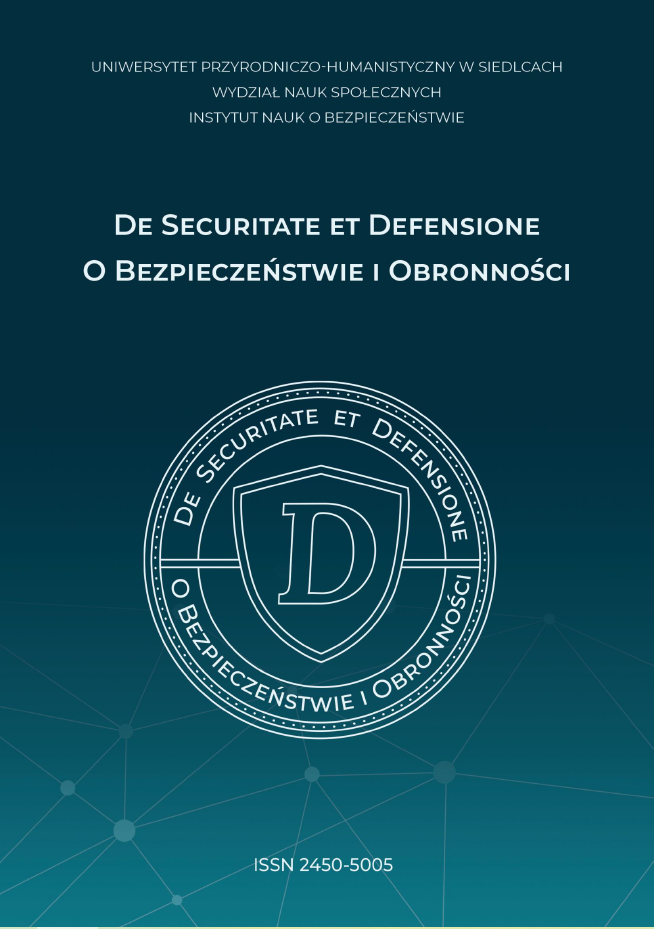The First Year of the Conflict in Ukraine: Political and Military Consequences for Central and Eastern Europe
DOI:
https://doi.org/10.34739/dsd.2023.01.01Keywords:
Ukraine, War, NATO, European Union, Central and Eastern EuropeAbstract
The outcome of the conflict in Ukraine will bring fundamental political, military, economic and social consequences, and define global and regional balance of power and fate of number of international organizations, including European Union and NATO. The aim of this paper is to analyze political and military consequences of the first year of the conflict in Ukraine for countries of Central and Eastern Europe, including the Baltic States and further development of trans-Atlantic link for European security, including development of NATO Alliance until 2030. Fundamentally different threat perception in Russian Federation and in NATO, EU countries, and Ukraine led to the beginning of military action of Russian Federation against Ukraine in February 24, 2022. Since then, military conflict in Ukraine has evolved into full-scale war on terrain of Ukraine, and increasingly negative escalation of political, military and economic relationships between Russian Federation and NATO, EU and other actors, bringing parties to nuclear standoff. War in Ukraine has brought substantial political and military endurance test for NATO and European Union. The immediate political consequences of the first year of war in Ukraine have been outlined in NATO Summit in Madrid in summer of 2022 and in NATO Agenda 2030. Continuation of NATO Open Door Policy has led to invitation of Finland and Sweden to join the Alliance thus fundamentally changing security environment in Central and Eastern Europe and the Baltic Sea Region. The Summit also declared to strengthen military posture on the Eastern flank of the Alliance thus countering hypothetical military threat of Russian Federation to the Baltic States and Central and Eastern European states. From the pure military perspective- NATO has substantially increased military support of Ukraine via creation of decision-making platform of Ramstein format as well as increasing understanding of NATO members for need to spend more resources allocated to defense. On the other hand, European Union has granted status of candidate for Ukraine, as well as provided continuous economic and financial support for Ukraine. Moreover, European Union has staged continuous and increasing policy of economic sanctions towards Russian Federation. However, despite substantial increase of political and military coherence and coordination of efforts of NATO and EU countries after the first year of the war in Ukraine, there are mounting challenges and risks. Firstly, increasing economic challenges in EU and NATO member- states which, subsequently, can lead to fundamental political consequences thus leading to diminished political and military support to Ukraine. Secondly, potential challenges for further military support of Ukraine and NATO Open Door Policy. NATO members- Turkey and Hungary-have different point of view on the enlargement of the Alliance and support of Ukraine. Thirdly, global and regional attitudes towards war in Ukraine and, predominantly, Western coalition of support for Ukraine. People’s Republic of China, India, Africa, Central and Latin America, other global and regional actors are mostly neutral towards war in Ukraine thus avoiding political and economic confrontation with Russian Federation. Yet another fundamental challenge: NATO countries are continuing to provide Ukraine with increasingly effective and sophisticated weapon systems which can lead to direct military confrontation between Russian Federation and NATO/The United States in 2023. Taking into account previously mentioned risks and challenges, it is obvious that there are several scenarios of development of war in Ukraine ranging from complete military victory for Ukraine and, subsequently, for the West to complete military victory of Russian Federation in Ukraine via long-term warfare of attrition.Downloads
Download data is not yet available.
Downloads
Published
2023-09-28
How to Cite
Rublovskis, R. (2023). The First Year of the Conflict in Ukraine: Political and Military Consequences for Central and Eastern Europe. De Securitate Et Defensione. Security and Defense Journal, 9(1), 7–20. https://doi.org/10.34739/dsd.2023.01.01
Issue
Section
Articles




